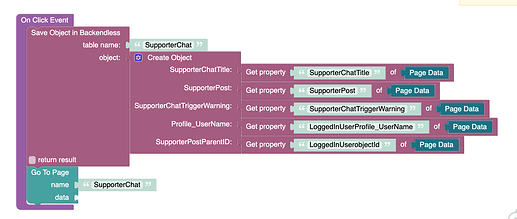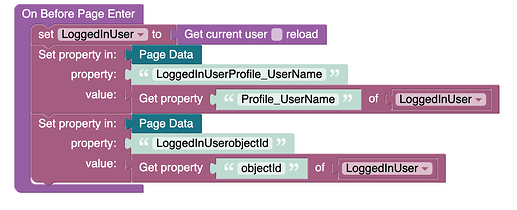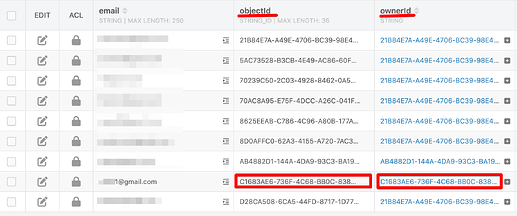Hi @TL_Robinson
Let’s take another look at your issue.
You’re asking why the SupporterPostParentID column in the SupporterChat table contains the same value as the ownerId, while you expected it to contain the value from the objectId column.
Since SupporterPostParentID is a plain text column, it simply stores whatever value is assigned to it.
Looking at the logic behind the Submit button on the SupporterChatNewPost page, I found the following:
As you can see, the value being saved into the SupporterPostParentID column is coming from the LoggedInUserobjectId field.
The LoggedInUserobjectId variable, in turn, contains the objectId of the currently logged-in user:
Checking the Users table, we can see that for this user, the objectId and ownerId happen to be the same:
Regards,
Viktor


